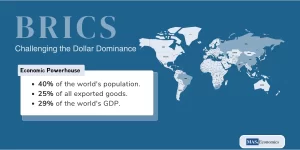The 2024 Sveriges Riksbank Prize in Economic Sciences in Memory of Alfred Nobel, commonly called the Nobel Prize in Economics, has been awarded to three distinguished economists: Daron Acemoglu, Simon Johnson, and James Robinson. Their groundbreaking work has enhanced our understanding of how institutions shape nations’ prosperity—or lack thereof—. By investigating the political and economic systems introduced during European colonization, these scholars have provided critical insights into why some countries remain poor while others grow wealthy.
In this article, we’ll explore the contributions of these Nobel laureates, focusing on how their research illuminates the persistent income gap between nations. We’ll also provide a historical overview of past Nobel Prize winners in economics and their significant contributions to the field.
The 2024 Nobel Laureates: Contributions to Understanding Institutions

Daron Acemoglu
- Born: 1967, Istanbul, Türkiye
- Affiliation: Massachusetts Institute of Technology (MIT), Cambridge, USA
- PhD: London School of Economics and Political Science, UK (1992)
Daron Acemoglu is best known for his research on institutions and their profound impact on economic growth. His collaboration with Robinson on the 2012 book Why Nations Fail: The Origins of Power, Prosperity, and Poverty has become one of the most widely cited works in development economics. Acemoglu’s theoretical and empirical research illustrates how inclusive political and economic institutions foster innovation, entrepreneurship, and sustained economic growth.

Simon Johnson
- Born: 1963, Sheffield, United Kingdom
- Affiliation: Massachusetts Institute of Technology (MIT), Cambridge, USA
- PhD: MIT (1989)
Simon Johnson’s work complements Acemoglu and Robinson’s, particularly in understanding the economic implications of institutional reforms and how these reforms impact both advanced and developing nations. Johnson has also focused on the role of financial crises in shaping economic policy and institutions, suggesting that robust governance is essential to mitigate these crises and promote long-term stability.

James A. Robinson
- Born: 1960
- Affiliation: University of Chicago, USA
- PhD: Yale University, USA (1993)
James Robinson is a political economist who has worked extensively on the role of institutions in economic development, especially in Latin America and Africa. Alongside Acemoglu, Robinson co-authored multiple influential works, including The Narrow Corridor: States, Society, and the Fate of Liberty. His research highlights the intersection between political power, institutional development, and long-term prosperity.
Why Institutions Matter
The central theme of the laureates’ work is that political and economic institutions are the primary determinants of a country’s prosperity. Institutions define the game’s rules—how wealth is distributed, who has political power, and how much economic freedom exists. The laureates emphasize two broad categories of institutions:
Inclusive institutions enable broad participation in the economy and political system. They encourage innovation and reward individual effort, which drives long-term economic growth.
Extractive Institutions: These institutions are designed to benefit the few at the expense of the many. They concentrate wealth and power in the hands of elites, stifling innovation and hindering economic progress.

©Johan Jarnestad/The Royal Swedish Academy of Sciences
The Role of European Colonization
A significant portion of the laureates’ work involves understanding how colonization by European powers shaped the institutions of colonized nations, with consequences that persist today. Their research has shown that areas where colonizers established inclusive institutions (such as parts of North America) have experienced sustained prosperity. In contrast, regions, where extractive institutions were introduced (such as parts of Africa and Latin America), continue to struggle with poverty and inequality.
One of the most striking findings is the “reversal of fortune”: countries that were wealthy before colonization, such as parts of Latin America, are now among the poorest, while countries that were relatively poor during colonization, such as the United States and Canada, are now among the wealthiest.
Settler Mortality and Institutional Choices
A critical insight from the laureates’ research is the concept of settler mortality. They discovered that in regions where European settlers faced high mortality rates (due to diseases), colonizers were more likely to establish extractive institutions designed to exploit the indigenous population. These institutions prioritized short-term wealth extraction over long-term economic development. By contrast, in regions with low settler mortality, Europeans were more likely to settle permanently, establishing inclusive institutions that laid the foundation for long-term prosperity.
Historical Overview
The Nobel Prize in Economics has recognized numerous contributions to the field of economics since its inception in 1969. Below is a table that highlights key recent winners and their contributions:
| Year | Laureates | Contribution |
|---|---|---|
| 2024 | Daron Acemoglu, Simon Johnson, James Robinson | Studies of how institutions are formed and affect prosperity, highlighting the role of inclusive and extractive institutions in shaping long-term economic growth. |
| 2023 | Claudia Goldin | For advancing the understanding of women’s labor market outcomes, focusing on gender wage gaps and how women’s participation in the workforce has evolved over time. |
| 2022 | Ben Bernanke, Douglas Diamond, Philip Dybvig | Research on banks and financial crises, including their contributions to understanding the role of banks in financial stability and how bank failures can lead to broader economic crises. |
| 2021 | David Card, Joshua Angrist, Guido Imbens | Empirical contributions to labor economics and causal relationships, particularly through natural experiments. Their research clarified how policies like the minimum wage and immigration affect the labor market. |
| 2020 | Paul Milgrom, Robert B. Wilson | Improvements to auction theory and the invention of new auction formats, with real-world applications ranging from spectrum sales to online markets. |
| 2019 | Abhijit Banerjee, Esther Duflo, Michael Kremer | Their experimental approach to alleviating global poverty, using randomized controlled trials to study the effectiveness of various interventions in education, health, and microfinance in developing countries. |
| 2018 | William Nordhaus, Paul Romer | Nordhaus integrated climate change into long-term macroeconomic analysis, while Romer contributed to the understanding of technological innovation as a driver of economic growth, emphasizing the role of policy and institutions in fostering innovation. |
| 2017 | Richard Thaler | For his contributions to behavioral economics, which challenges the assumption of rational decision-making in economics. His research on human behavior and economic decisions has influenced policies ranging from finance to public health. |
| 2016 | Oliver Hart, Bengt Holmström | For their work on contract theory, providing a framework to understand the incentives and risks in contractual relationships, which has applications in corporate governance, law, and economics. |
| 2015 | Angus Deaton | For his analysis of consumption, poverty, and welfare, providing insights into how households behave, how wealth is distributed, and how economic development affects health and wellbeing. |
| 2014 | Jean Tirole | For his analysis of market power and regulation, particularly his work on understanding how large firms influence markets and how governments can effectively regulate monopolies and prevent market abuse. |

|
||
Reversal of Fortune: A Historical Perspective
The laureates’ research also explains the paradox of the reversal of fortune, where regions that were relatively prosperous during the 16th and 17th centuries (e.g., parts of Latin America and India) are now among the world’s poorest. By contrast, sparsely populated regions such as the United States and Canada, which were relatively poor at the time of colonization, have become some of the richest countries in the world.
The explanation lies in the type of institutions that were implemented. Densely populated regions were more likely to have extractive institutions established by colonizers, while sparsely populated regions developed inclusive institutions that fostered growth.

©Johan Jarnestad/The Royal Swedish Academy of Sciences
Challenges of Reform
Reforming extractive institutions has proven to be one of the greatest challenges in economic development. The laureates argue that entrenched elites often resist reforms that would create more inclusive institutions because they benefit from maintaining the status quo. However, they also acknowledge that under certain conditions, reforms can take place, particularly when the threat of revolution forces elites to relinquish power.
Their research highlights the commitment problem: elites cannot credibly commit to enacting reforms that would benefit the broader population, leading to mistrust and stagnation. Without credible reform promises, societies often remain stuck in a cycle of poverty and inequality

©Johan Jarnestad/The Royal Swedish Academy of Sciences
Global Implications of the Laureates’ Work
Acemoglu, Johnson, and Robinson’s work has far-reaching implications for contemporary global challenges. Their research underscores institutional reforms, particularly those promoting inclusivity and the rule of law, are essential to reducing global inequality. Corruption flourishes in nations with weak institutions, poverty remains entrenched, and economic progress is stifled.
The laureates have shown that democratic governance and inclusive economic systems are critical for long-term development. Their findings support the notion that development policies must focus on improving institutions, ensuring they are fair, inclusive, and accountable. This is particularly important as the world grapples with challenges like wealth inequality, authoritarianism, and the rise of populist movements.
Key Takeaways
The 2024 Nobel laureates—Daron Acemoglu, Simon Johnson, and James Robinson—have made lasting contributions to our understanding of the relationship between institutions and prosperity. By analyzing the long-term effects of colonial institutions and providing a theoretical framework for understanding institutional change, they have laid the groundwork for future research in economics and political science.
Their work reminds us that addressing global inequality requires both economic growth and inclusive growth—where institutions are designed to benefit the many, not the few. Their research shows that the way forward lies in building more robust, inclusive institutions that promote fairness, accountability, and long-term prosperity.
Thanks for reading! Share this with friends and spread the knowledge if you found it helpful.
Happy learning with MASEconomics



